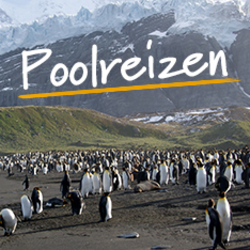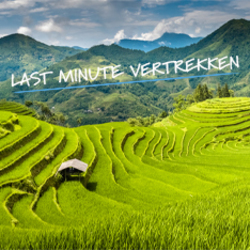Maak kans t/m 5 januari
BekijkActivities
- Natural Wonders
- Wildlife Walks
- Walking & Trekking
- — Walk picturesque trails on an island-hopping adventure in the Azores — Discover the unique Pico vineyards, which grow close to the sea in volcanic soil — Gaze into the deep crater of Caldeira volcano on a circular walk around the rim — Take the opportunity to summit Mount Pico on an optional trek
Food
-
1
Start in Madalena, Pico
Arrive at the hotel in Madalena, Pico, our base for the first three nights of the trip. Depending on when everyone arrives, there will be a welcome briefing either this evening or tomorrow morning. Pico is known as the Black Island thanks to the black volcanic earth used to build walls on many of the UNESCO-listed vineyards. It is also home to the highest peak in Portugal, Mount Pico, which stands at 7,713ft (2,351m) and dominates the horizon. Accommodation: Hotel Caravelas (or similar)
-
2
Walk to the coast on the Caminho dos Burros or take an optional climb to the summit of Mount Pico
We start the week with a transfer to the central highlands of Pico, by Caminho das Lagoas, where we begin our hike. After following a dirt track, we take a path that leads close to the Cabeço do Mistério volcanic zone, formed in 1562-1564 during the longest volcanic eruption since people settled in the Azores. It's common to encounter fog and mist in this zone, and amongst the dense vegetation we may come across endemic species such as the Azores spurge (Euphorbia stygiana). Following the route, we begin our descent to Pico's northern coast, passing through pastures and noticing how the vegetation increases in size as we descend. We continue towards the coast through a forest of acacia and Azores laurel in the Prainha Forest Park until we reach our destination for today, Baía das Canas, where it may be possible to have a short swim (weather conditions and time permitting). Alternatively, today is the perfect opportunity to join an optional challenging trek to the top of Mount Pico. This is a very strenuous six-to-seven-hour climb, which will be led by a local mountain guide. The excursion must be booked in advance of the trip and is always subject to availability and favourable weather conditions (for further information please check the Extra Expenses & Spending Money section of the Trip Notes). Accommodation: Hotel Caravelas (or similar)
-
3
Optional whale-watching excursion; walk through vineyards on the Vinhas da Criação Velha route
Apart from offering unique walking opportunities, the Azores is among the best places on the planet to spot whales and dolphins. There are 80 species of whale and dolphin and 25 of them have been sighted off the coast here, with sperm whale the most common. There is also the chance to spot bottle-nose dolphins, short-finned pilot whales, sei whales, Atlantic spotted dolphins and blue whales. If you choose to go on an excursion, you will have the chance to observe the behaviour of these wonderful creatures and learn more about their habitat with the help of the knowledgeable local experts on board. We observe strict protocols regarding interaction, always maintaining an appropriate distance. Moreover, during feeding and resting times, we avoid any interference with the natural habitat of the whales. Please note the whale-watching excursion must be booked in advance of your trip. Please speak to your sales representative for more details. In the afternoon, we embark on a largely coastal trail, notable for its scenic and cultural diversity, and which connects the village of Candelária to Areia Larga (part of Madalena town). This trail passes through an area protected by UNESCO for its unique vineyard culture and is one of the most emblematic features of the island. Azorean vineyards are a sight to behold. Built to protect the vines from the harsh sea winds, they amount to row after row of black horseshoe shapes that score the lush, green coastline. What is more impressive is how the vines grow on the ground and through volcanic rock, rather than supported by a trellis. Our trail is rich in elements associated with vineyard culture such as rola-pipas (carved slopes to enable wine barrels to be slid along the ground to the waiting boats) and relheiras (tracks left by the wheels of ox carts). The path winds from the coast, then inland to circumnavigate hills, and back to the coast, with sections offering beautiful views over the vineyards and the islets of Madalena. We end by walking along the ocean-front until we reach Areia Larga. Accommodation: Hotel Caravelas (or similar)
-
4
Ferry to São Jorge, coastal walk to Fajã dos Vimes
This morning, we take a ferry (approximately one hour) to the fascinating island of São Jorge. Here, steep-sided cliffs seem to slice through the ocean and fajãs (low-lying areas of lava formed from the subsidence of the cliffs) attract visitors from far and wide. São Jorge is also well known throughout the Azores for producing delicious cheese, one of its main exports. We start in the small village of São João, where we can admire the narrow streets and traditional houses. We then head inland and cross agricultural fields where crops such as grapes, corn and yam grow. As we continue, the farmland gives way to woods of firetree, Australian cheesewood and white wood. Looking back, we can enjoy views of Fajã de São João. On our way to Lourais, the highest point of our walk, we cross the Ribeira do Salto stream, so named for the nearby waterfall that plunges into a pool. We continue our descent to Fajã dos Bodes and on towards Fajã dos Vimes, being sure to stop and enjoy the views across Pico and Faial islands. Returning to the coast, we end today's walk in Fajã dos Vimes, where it's possible to taste a locally produced coffee or visit a handicraft workshop where traditional quilts are made (time permitting). The coffee served at Café Nunes, in Fajã dos Vimes, is well known for having once been the only coffee produced in Europe. The owner of the café has a small coffee plantation behind his house, where the coffee is produced and prepared by his own family. The coffee is organic and has a unique texture and aroma. At the end of the walk, we transfer to our hotel on São Jorge, where we stay for two nights. Accommodation: Hotel São Jorge Garden (or similar)
-
5
Walk from Serra do Topo to Fajã dos Cubres
Today's walk offers beautiful panoramic views of the northern coast of São Jorge, along with many points of geological and cultural interest. We begin the day close to Serra do Topo wind farm and head north on a path rich with native flora and birds – if we're lucky, we may spot Eurasian whimbrels, São Miguel goldcrests and buzzards. As we descend towards the northern coast, we pass an inviting waterfall where it's possible to stop for a swim. We then come to the Caldeira de Santo Cristo Lake, a protected landscape and place of cultural and scenic interest. Known for the vast number of clams that inhabit the lake, it is an important resting place for resident species and migratory birds. Surfing and bodyboarding have also become popular here, as the lake lies directly next to the Atlantic Ocean. We follow the coast northwest until we arrive at the scenic Fajã dos Cubres, near the church of Nossa Senhora de Lourdes. We transfer back to our accommodation on São Jorge in the afternoon. Accommodation: Hotel São Jorge Garden (or similar)
-
6
Ferry to Faial, Capelo to Capelinhos walk
This morning, we take a ferry (approximately 2hr 30min) to Faial, known as the Blue Island because of the myriad hydrangeas that bloom during summer. After arriving, we transfer to the island interior and the start of today’s hike, which goes to the volcanic ridge of Península do Cabeço, a site of geological interest with approximately 20 volcanic cones. We follow a path overlooking the coastal village of Praia do Norte, before descending to Furna Ruim, a 180ft (55m) deep lava cave. Continuing through a landscape of Azorean laurel trees and heather, we pass the impressive Algar do Caldeirão cave then take a stairway towards Cabeço do Canto, from which we will enjoy fantastic views of the Capelinhos Volcano. There may be time for an optional visit to the Interpretation Centre (entrance not included, dependent on our arrival time) to learn more about the volcanic eruptions of 1957-58, which changed the shape of Faial. In the afternoon, we transfer to our hotel on Faial, our base for the last two nights of the trip. Accommodation: Hotel Faial Garden (or similar)
-
7
Caldeira crater walk
Our final walk in the Azores is an impressive circular hike around Faial's iconic volcanic crater, Caldeira. Formed by several eruptions over the last 400,000 years, Caldeira is an important site of geological interest. We start the day's walk at the principal viewpoint of Caldeira, taking a tunnel to the vast interior of Cabeço dos Trinta's volcanic cone, now home to an abundance of natural vegetation including heather and holly. Returning to the trail, we follow a route that circumnavigates the crater, all the while taking in spectacular views into the crater on one side and marvellous coastal vistas on the other. Along the way, it's possible to spot several endemic species including Azorean blueberry and Azorean angelica. We return to our hotel in Faial and the rest of the day is free for you to spend as you wish. Accommodation: Hotel Faial Garden (or similar)
-
8
End Horta, Faial
We enjoy our final breakfast of the tour before making our return journey home. If you’d prefer to spend a bit more time on the island, speak to your sales representative about extending your stay.






























